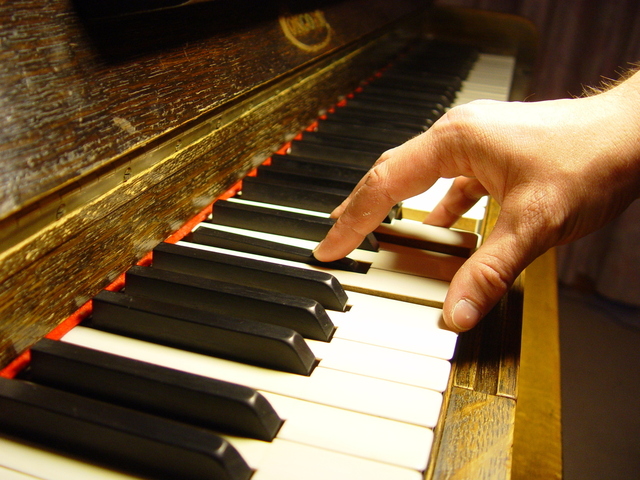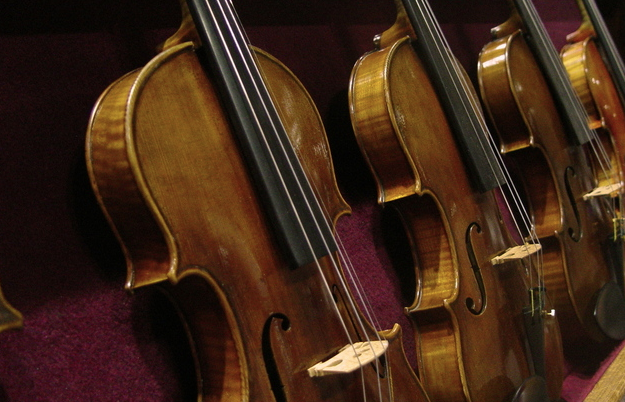“The things that don’t exist are the most difficult to get rid of.”
-F.M. Alexander, founder of the Alexander Technique
Serious musicians are typically filled with very strong beliefs. Beliefs about their pedagogy, beliefs about their equipment, and beliefs about themselves.
Part of my job as an Alexander Technique teacher is to gently and respectfully question the validity of some of these beliefs.
The easy part of this is calling into question things they happen to believe that are contrary to the physical principles of nature, such as what their diaphragm actually does, or about various acoustical elements involved in producing a sound.
Once I explain and demonstrate the science, they become clearer and usually discard their misconceptions.
But the more insidious type of belief that my students carry isn’t so easily discarded: what they believe about themselves.
For the musician, it usually manifests itself in three closely related components:
1. Physical necessity (“I need to do this to play well.”)
2. Learning style (“This is the best way for me to learn/practice to play well.”)
3. Potential (“This is what I’m ultimately capable of doing.”)
I say they’re closely related, because number one will have a significant impact on number two, which will then impact number three.
Now, to be clear, I think it’s wonderful when musicians have a good understanding of themselves, their own learning styles, and their potential. (In fact, its’ something that I aim to help my students improve through the work with the Alexander Technique.)
It’s just that if a musician goes on thinking something about him or herself that just isn’t true, it’s very difficult to change things for the better.
Let’s take for example the, “I need to do this to play well.” Even after I demonstrate the physical reality of erroneously conceived ideas about anatomy/physiology as it applies to pedagogy (as mentioned above), musicians sometimes respond with a bit of a disconnect.
It’s as if they’re thinking, “Yeah, I can see that it works that way in nature, but it doesn’t necessarily apply to me.” Unless I can bridge that disconnect (and I usually can) they will continue to play with much more strain and effort than they think they need.
But it’s the learning style component that can be more difficult to penetrate.
Thinking things like, “I need to practice it exactly this way to get the best result” can turn into a prison of sorts for some musicians.
On the one hand, it comes with an element of truth: You do, to a certain degree (perhaps a large degree), have a good understanding of how you learn and practice best. This understanding has helped you produce some good results.
But you are not yet an authority. Nobody is (including me!)
“Learning how you learn” is a lifelong, ever unfolding, dynamic process. I don’t know exactly how I learn best. Instead, I’m always consciously aspiring to become a better learner.
And I can say with confidence that I’m a better learner today than I was two years ago (but not as good a learner as I will be two years from now).
This involves the underlying assumption on my part that there is always a better way for me to learn something, and hence, a more effective way to practice. I just need to stay curious, inquisitive, discerning (as objective as possible), organized and vigilant.
My false learning beliefs manifest themselves into lots of misdirected practice energy. Far too much time spent on the wrong things, not enough time on the right things.
When this is the case, my desire to improve is not optimally supported by my practice efforts. Simple as that.
Every time I let go of a false belief about how I learn, I move closer to my potential as a musician.
And that brings me to the belief about potential. To be truthful, I don’t know what mine is. I have a good sense of my strengths and weaknesses, my desires and discipline, but this gives me lots of room for possibility.
However, I do have an ever-increasing faith in my potential to to continue to learn, grow, and more clearly express myself musically.
As I let go of previously held misconceptions about my body, about acoustical principles, about what (and how) I need to practice to optimize my efforts, I move ever closer toward whatever my potential may be.
I describe these false beliefs about myself as invisible obstacles, carrying with them a self-fulfilling prophecy that limits my growth. My work with myself is to question them, to bring them into the light.
How about you? What are your invisible obstacles? Until you can bring them into the light, you will continue to be powerfully shaped by them.
Start by questioning things that you perhaps accept as the absolute truth.
Strive to more clearly understand yourself and your bodily structure and human design. Study some basic anatomy as it applies to playing your instrument.
Take an Alexander Technique lesson in order to learn how to use your body in such a way as to optimize your practice efforts.
Study the acoustics of your instrument. Understand your physical role in relationship to these acoustical principles.
But most of all, be ever flexible, curious, open-minded and humble about how you learn. You really have no idea of how far you can go. And that’s a good thing.

